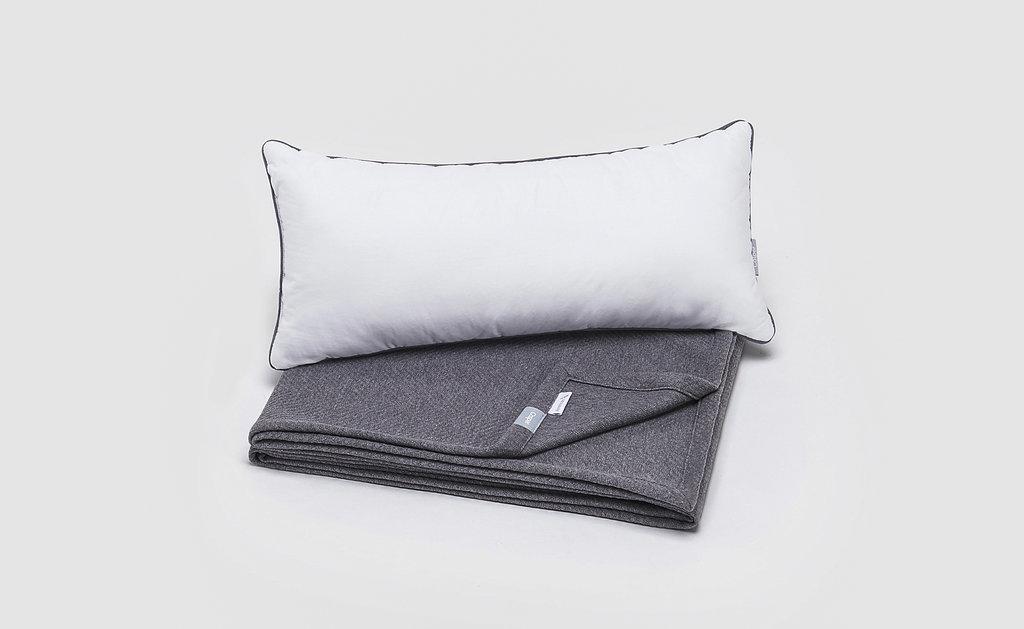
From meditation, apps to exercise videos, healthier snacks to gourmet meals, airlines both international and domestic are renewing their commitment to healthy passengers.
Wellness isn’t a concept that seems synonymous with the ever-growing hassles of flying, but that could finally be changing. Some airlines are embracing the idea of healthier flying, offering calorie-conscious menus, and new exercise videos.
According to Beth McGroarty, research director for The Global Wellness Institute, a nonprofit organization for the wellness industry, even as seats shrink and flights get more crowded, many carriers want air travel to be more bearable (and even enjoyable). They believe wellness is the way to do that. “It’s part of the larger wellness movement happening in the travel industry,” she said.
And, unlike the usual trend of amping up onboard amenities for only their first and business class customers and stripping them away for passengers in the economy, Ms. McGroarty said that no passengers are left out in this recent wellness push. “Wellness in the air, in many instances, is more democratic,” she said.
Meditation Apps, Stretching Exercises and Yoga Videos
All United Airlines and JetBlue customers have access to the popular digital meditation service Headspace as part of their in-flight entertainment. JetBlue’s Headspace content includes videos that address travel topics, such as fear of flying and difficulty sleeping upright.
Among international carriers, Swiss International offers Headspace onboard long-haul flights, and British Airways has a Well Being channel on its in-flight entertainment systems that includes meditation and stretching exercises. Also, the Hong Kong-based carrier Cathay Pacific recently launched six in-flight videos, called “Travel Well With Yoga,” in a partnership with Pure Yoga, the popular yoga studio chain. Each video is between five and 20 minutes, and feature yoga and meditation exercises such as hip and back stretches and deep breathing.
Pillows, Blankets and Comfortable Sleep Gear
American Airlines started prioritizing wellness after conducting customer surveys and running focus groups with fliers about what they want. “We learned that our passengers care a lot about their well-being,” said Nick Richards, the company’s director of customer experience.
Less Junk Food, More Nourishing Meals
Mental well-being and sleep aside, airlines are also incorporating wellness onboard by offering healthier food and drink options.
Turkish Airlines, for instance, has a new Fly Good Feel Good campaign that includes a menu of herbal teas such as one with rooibos, sage, and lavender to help relieve stress and promote sleep. Another is an energizing blend with mate, mint, and ginger. Children are offered a traditional Turkish drink with milk, carob powder, and date syrup that’s meant to strengthen the bones.
In January, TAP Air Portugal tapped five Michelin-starred Portuguese chefs to create low-calorie Portuguese-influenced entrees for its business class passengers. Those entries will also be offered to economy passengers starting this summer, said Joel Fragata, head of the airline’s in-flight products. José Avillez, of the two Michelin-starred Lisbon restaurant Belcanto, crafted a stone bass in tomato and onion stew, along with coriander and basil potatoes for TAP’s fliers while Henrique Sá Pessoa, of the Michelin-starred Alma, also in Lisbon, came up with a lemongrass and ginger chicken curry.
“We want to showcase our delicious cuisine but do it with health in mind because people today are more and more health-conscious,” Mr. Fragata said.
A handful of domestic carriers, too, are encouraging mindful eating. Dr. Charles Platkin, a nutrition and public health advocate, and the director of the Hunter College NYC Food Policy Center, conducts an annual airline food study where he analyzes the economy food of every domestic carrier. In his latest study, released last December, he declared that Delta Air Lines is a leader “by a long shot” in its commitment to improving “its food in terms of health and consciousness.” Dr. Platkin’s analysis found that Delta’s meals, snack boxes, and individual snacks have an average of 480 calories, a decrease from the year before, at 527 calories.
Delta also frequently updates its food choices including its free snacks. Almonds, a pretzel snack mix, and a KIND Dark Chocolate Chunk Bar are among the recent offerings, and all are less than 200 calories and gluten-free. To purchase, fliers can choose from a menu that includes wraps from Luvo, a company whose mission is to create nutrition-focused meals.
In commending other carries in their commitment to wellness, Dr. Platkin also called out JetBlue’s newly available AmuUp box, packed with gluten-free crackers, hummus, olives, almonds, and a fruit energy bar. Tamara Young, a spokeswoman for the airline, said that adding the box to its onboard menu lineup is one of the ways the airline is weaving wellness into “its customer experience.”


